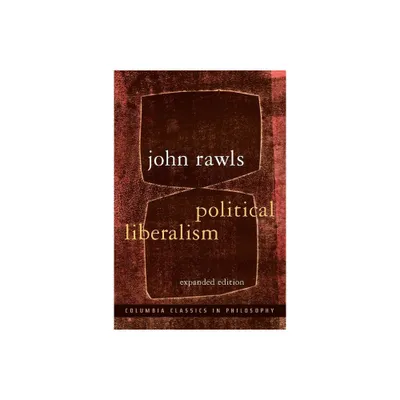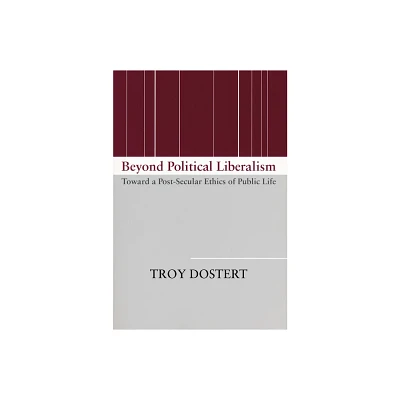Home
Partisanship and Political Liberalism Diverse Societies
Loading Inventory...
Barnes and Noble
Partisanship and Political Liberalism Diverse Societies
Current price: $105.00


Barnes and Noble
Partisanship and Political Liberalism Diverse Societies
Current price: $105.00
Loading Inventory...
Size: Hardcover
*Product Information may vary - to confirm product availability, pricing, and additional information please contact Barnes and Noble
Since its publication in 1993, John Rawls's
Political Liberalism
has been central to debates concerning political legitimacy, democratic theory, toleration, and multiculturalism in contemporary political theory. Yet, despite the immense body of literature which has been produced since Rawls's work was published, very little has been said or written regarding the place of political parties and partisanship within political liberalism. This book aims to fill this gap in the literature. Its central argument is that political liberalism needs and nourishes political parties, and that political parties are therefore not hostile but vital to it. First, partisanship generates its own distinctive kind of political obligations, additional to any political obligations people may have qua ordinary citizens. Second, contrary to what many critics argue, and despite its admittedly restrictive features, Rawls's conception of public reason allows significant scope for partisan advocacy and partisan pluralism, and in fact the very normative demands of partisanship are in syntony with those of public reason. Third, parties contribute to the overlapping consensus that for Rawls guarantees stability in diverse societies. Fourth, political liberalism nourishes political parties, by leaving many issues, including religious and socio-economic ones, open to democratic contestation. In summary, parties contribute both to the legitimacy and to the stability of political liberalism.
Political Liberalism
has been central to debates concerning political legitimacy, democratic theory, toleration, and multiculturalism in contemporary political theory. Yet, despite the immense body of literature which has been produced since Rawls's work was published, very little has been said or written regarding the place of political parties and partisanship within political liberalism. This book aims to fill this gap in the literature. Its central argument is that political liberalism needs and nourishes political parties, and that political parties are therefore not hostile but vital to it. First, partisanship generates its own distinctive kind of political obligations, additional to any political obligations people may have qua ordinary citizens. Second, contrary to what many critics argue, and despite its admittedly restrictive features, Rawls's conception of public reason allows significant scope for partisan advocacy and partisan pluralism, and in fact the very normative demands of partisanship are in syntony with those of public reason. Third, parties contribute to the overlapping consensus that for Rawls guarantees stability in diverse societies. Fourth, political liberalism nourishes political parties, by leaving many issues, including religious and socio-economic ones, open to democratic contestation. In summary, parties contribute both to the legitimacy and to the stability of political liberalism.


















